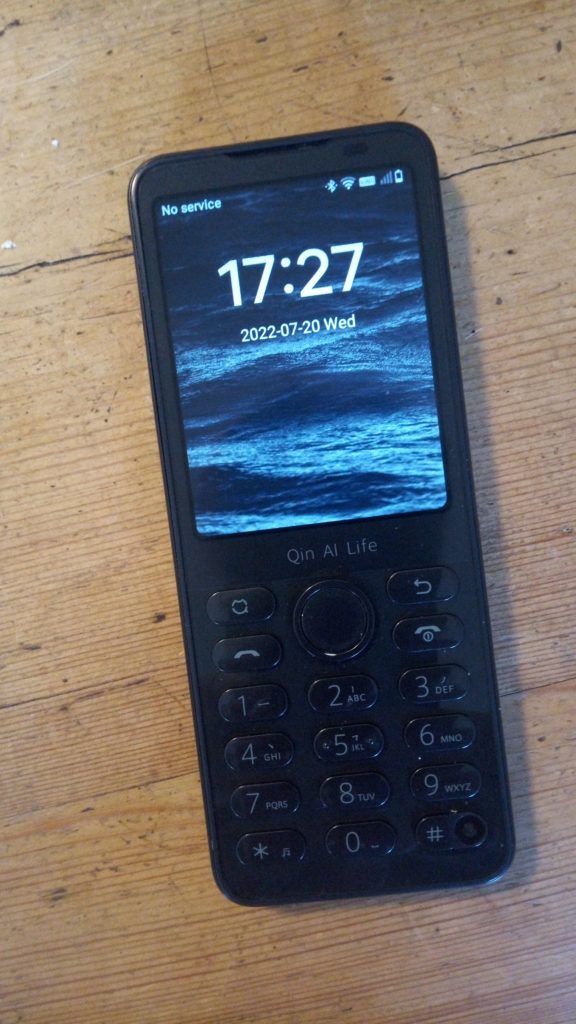Secure, private & trustworthy Android
That you (not Google) controls – and which works well as a phone
I’m a later adopter to smart phones. My early experiences confirmed just about every bad thing I’d heard about them. I was astonished, for devices of such putative hardware power, just how ridiculously and deliberately limited they were in software:
A very simple and ugly design principal underlies standard Android phones: effectiveness of advertising penetration means everything, the wellbeing of the users means nothing. The users are only a commodity input to the only reason Google exists: advertising revenue.
- From the first time I started it up, and then persistently, it would try to get me to sign in and turn over information to Google.
- I was shocked to find I couldn’t install third party applications … without a Google account. Who were they to act as gatekeepers to software they had nothing to do with?
- Another mindblowing moment: that all the apps effectively run all the time. What do you mean, I can’t stop a supermarket app I’ve run once from running constantly and doing god knows what in the background?
- And those apps that are running all the time – they’re spying on you all the time as well. The list of apps requesting access to the location became truly comical – even one for transferring pictures from the camera wouldn’t work without it.
- There may be vast numbers of apps available for Android – but the quality, and dare I say community spirit, is pretty terrible. On linux, you would never dream of paying for something like a photo viewer or it having adverts in. In Google play store, the tiniest, crappiest app will be crammed full of adverts, and someone will happily charge you £5 for something as basic as an icon manager. Both of them will be full of trackers, often to Facebook and god knows what. This makes the linux world look like a eutopian paradise.
- So many notifications, distractions and bullshit. Naturally, the more they can distract you, normalising handling your phone 3000 times a day – the longer you spend staring at their precious adverts and feeding them more data.
- Forget about any control over software updates and changes. Google and suppliers control that.
Call me naive, but this stuff genuinely took me by surprise.
Thinking about it more and more, it seemed there was a very simple and ugly design principal underlying standard Android phones: effectiveness of advertising penetration means everything, the wellbeing of the users means nothing. Even though it looks like they own the phone, pay for the electricity (and most of our software has been ripped off the open source community anyway): the users are only a commodity input to the only reason Google exists: advertising revenue, which is almighty.
As part of this journey, I have learnt just how truly profound the permeation of Google spying on you is to pretty much every aspect of “their” operating system.
Once you understand that principal, many of the design decisions in Android start to make sense. This is why, for the users, it sucks.
Some principals
The problem is, there aren’t many other options than Android (aside from the even more authoritarian walled-garden of Apple). KaiOS was a non-starter as I described before.
But Android at its core is an open source project (AOSP) – by adding some control over what runs when, blocking data gathering and spying, and having a zero-tolerance policy to advertising it should be possible to get it to a place where it’s secure, trustworthy and usable.
It sounds a bit dispiriting and daunting … but I’m telling you, it can be done
I was sure it would be a fair bit of work to get to this point – but I knew in outline what I’d need to do.
- Shockingly: as the human and owner I and no-one else must be the root of trust. Not the phone, not Google, not anyone else. This means I get to decide when updates are applied (if ever), which applications are trusted, what can access the internet etc.
- Likewise, I should be able to decide what software runs and when it runs – and nothing I don’t want or need to run should be active. This more than just saves resources – the whole question of trivial applications running all the time underpins most of the antipatterns of smartphone usage, from continually distracting to continuously spying on the user.
- Need to know basis – applications should know as little possible, just enough to work and nothing else. Absolutely nothing needs to know my location, nothing other than the phone book can my contacts, my torch should not be stealing my data…
- No distractions. I work the phone, it doesn’t work me. When I want to use it, I pick it up. The only time it should bother me is when a human needs to raise me, because it is an emergency.
The End Result
It sounds a bit dispiriting and daunting to lay out the scale of the challenge like this. However, I’m telling you that it can be done.
And the result, with the Qin F21 – is fantastic.
